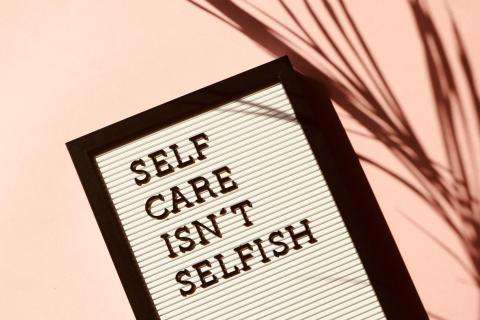Affordable Ways for College Students to Engage in Self-Care
Sep 09,2024
Navigating college life can be a whirlwind of academic pressures, social obligations, and personal growth. Amidst the hustle and bustle, taking care of oneself can easily slip down the priority list. However, self-care is crucial for maintaining both physical and mental well-being. The good news is that self-care doesn’t have to come with a hefty price tag. Here are some affordable ways college students can incorporate self-care into their busy lives.
1. Exercise on a Budget
Exercise is a powerful tool for boosting mood, reducing stress, and improving overall health. Fortunately, you don’t need a gym membership to stay active. Consider free or low-cost exercise options like:
- Campus Fitness Centers: Many colleges offer free access to their fitness centers, which may include equipment, group classes, and swimming pools.
- Outdoor Activities: Walking, jogging, or biking around campus or nearby parks can be both enjoyable and cost-effective.
- Home Workouts: Utilize online resources such as YouTube for free workout videos, yoga sessions, or bodyweight exercise routines.
2. Mindfulness and Meditation
Mindfulness and meditation can help manage stress and improve mental clarity. There are numerous free resources available:
- Apps: Many mindfulness and meditation apps, like Insight Timer or Calm, offer free versions with guided meditations and relaxation exercises.
- Campus Resources: Some colleges provide free workshops or courses on mindfulness and stress management.
- DIY Practices: Create your own mindfulness routine by setting aside a few minutes each day for deep breathing or reflection.
3. Healthy Eating Without Breaking the Bank
Eating well supports both physical health and mental well-being. Budget-friendly ways to maintain a healthy diet include:
- Meal Planning: Plan meals ahead of time and make a shopping list to avoid impulse buys. Look for easy, nutritious recipes that use affordable ingredients.
- Campus Resources: Take advantage of any campus food programs, like farmer’s markets or food pantries, which might offer fresh produce and other healthy options.
- Bulk Buying: Purchase non-perishable items like grains, beans, and frozen vegetables in bulk to save money over time.
4. Connecting with Others
Social connections are vital for emotional health. Strengthen your relationships without spending a lot:
- Study Groups: Join or form study groups to combine academic needs with social interaction.
- Campus Events: Attend free campus events, clubs, or social gatherings to meet new people and engage in enjoyable activities.
- Virtual Meetups: Use free video call platforms like Zoom or Google Meet to stay in touch with friends and family, especially if you’re far from home.
5. Creative Outlets
Engaging in creative activities can be a great way to relieve stress and express yourself:
- Art Supplies: Use inexpensive supplies to explore drawing, painting, or crafting. Sometimes, all you need is a pencil and paper.
- Writing: Journaling or creative writing can be therapeutic and requires minimal expense. A simple notebook and pen can be enough.
- DIY Projects: Look for craft ideas online that use household items to create something new and satisfying.
6. Restful Sleep
Adequate sleep is essential for overall health, yet it’s often overlooked. Improve your sleep quality without spending extra money by:
- Establishing a Routine: Stick to a consistent sleep schedule to regulate your body’s internal clock.
- Creating a Relaxing Environment: Make your sleeping space as comfortable as possible with simple adjustments, such as blackout curtains or a white noise machine (many free apps can simulate white noise).
- Limiting Screen Time: Avoid screens at least an hour before bed to improve your chances of a restful night’s sleep.
7. Free or Low-Cost Entertainment
Engage in activities that lift your spirits without spending a fortune:
- Library Resources: Take advantage of your campus or local library for free books, movies, and events.
- Community Events: Many communities host free or low-cost events such as concerts, festivals, or outdoor movie nights.
- Exploring Nature: Visit local parks, trails, or natural areas for a refreshing and cost-free outdoor experience.
8. Self-Care Routines
Establishing small, daily self-care routines can be a powerful way to maintain balance:
- Personal Time: Allocate a few minutes each day for activities you enjoy, whether it’s reading, listening to music, or taking a relaxing bath.
- Gratitude Practice: Start a gratitude journal to reflect on positive aspects of your life, which can boost your mood and perspective.
Self-care doesn’t have to be expensive to be effective. By taking advantage of free or low-cost resources and incorporating simple practices into your daily routine, college students can enhance their well-being without stretching their budget. Prioritizing self-care is essential for managing the demands of college life and fostering long-term health and happiness. With these affordable strategies, students can create a balanced and fulfilling college experience.






